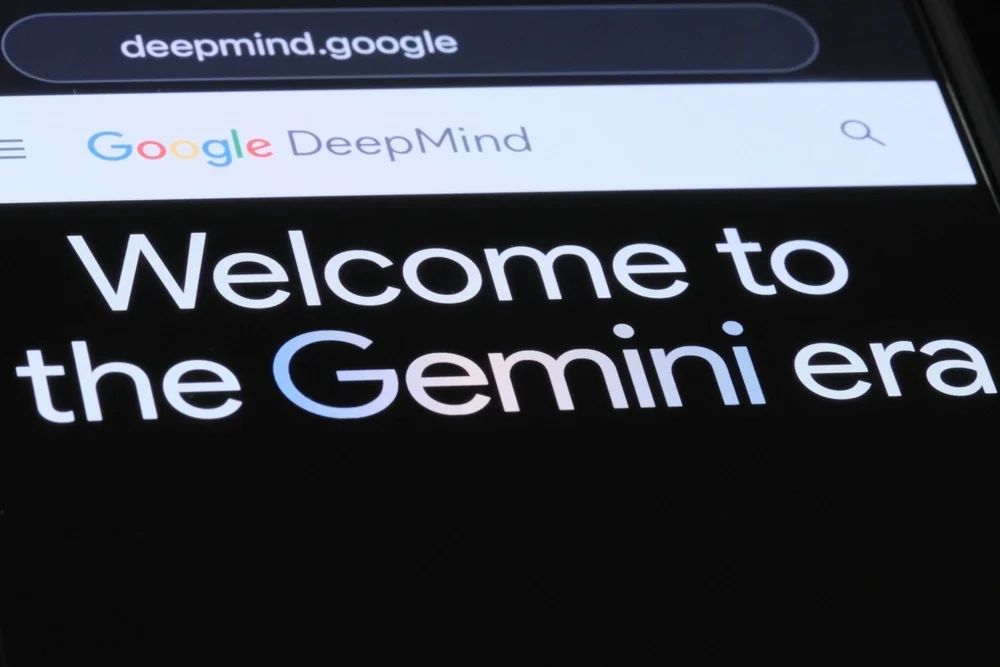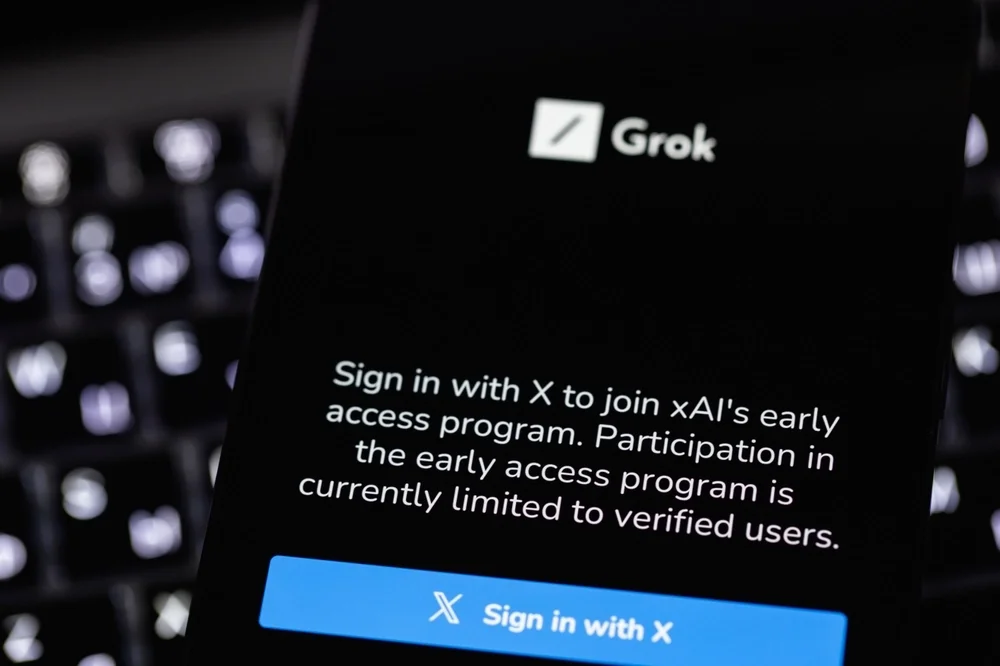
Right now, major tech companies are clamouring to replicate the runaway success of ChatGPT, the generative AI chatbot developed by OpenAI using its GPT-3 large language model (LLM) – now surpassed by GPT-3.5 and 4. Much like potential game-changers of the past, such as cloud-based Software as a Service (SaaS) platforms or blockchain technology (emphasis on potential), established companies and start-ups alike are going public with LLMs and ChatGPT alternatives in fear of being left behind.
While many of these companies will succeed in their LLM projects – some in the mass market and others with niche applications – many more will likely fail as the market consolidates.
Which, then, are the ChatGPT alternatives in good stead to challenge OpenAI?

Table of contents
Companies with Large Language Model (LLM) projects
Google – Gemini
Since the release of GPTs 3, 3.5 and now 4, Google as a company has been playing second fiddle to Microsoft (via OpenAI) on AI and LLMs – despite utilising machine learning in its products since 2001 – but now the search giant is about to stake its claim to the throne of yet another tech field.
In December 2023, Google unveiled its Gemini large language model, the successor to prior projects including LaMDA and PaLM, developed by the newly consolidated Google DeepMind department.
The company claims that Gemini, which comes in Ultra, Pro and Nano versions, bests GPT-4 in 30 out of 32 LLM performance tests.
Users can make up their own minds since Gemini is already powering Google’s Bard chatbot, which has so far lagged behind in popularity as a ChatGPT alternative after an inauspicious start due to returning a factual error during its unveiling.
X (formerly Twitter) – Grok
Despite continued challenges both technical and financial since acquiring Twitter, now X, Elon Musk is continuing to expand his plans for the turmoil-ridden social network.
In early November the tech billionaire announced the ChatGPT alternative Grok. The project, which is still in early development, distinguishes itself via a “based” and “sarcastic” tone of voice, according to Musk, as well as real-time access to X users’ posts.
In an announcement post by xAI, Musk’s new AI startup, the Hitchhiker’s Guide to the Galaxy-inspired chatbot will “answer spicy questions that are rejected by most other AI systems”, suggesting that it may have less stringent guide rails than its competitors.
Grok was trained on a prototype LLM named Grok-0, with 33 billion parameters (around half of LLaMA) and has since moved on to using a successor LLM, Grok-1.
Early access is available to Grok, currently with a waiting list, but once it has officially rolled out, it will be available to X Premium+ subscribers.

Apple – Ajax
Apple, the most valuable company on the planet, has been a latecomer to the generative AI space, but it is finally entering the ring with its offering still in development, dubbed “Ajax“.
The LLM framework is built using Google’s machine learning accelerator JAX and runs on Google Cloud. Thus far little else is known about the project, though multiple teams at Apple are working on it and there are no immediate plans to release it to the public just yet.
Apple has been cautious about the LLM boom, despite being an AI pioneer with its Siri product, and continues to show trepidation over moving into the space too quickly. CEO Tim Cook told investors in May that while there is a lot of potential for the technology, there are “a number of issues that need to be sorted”.
AI21 – Jurassic-2
Israel-based start-up AI21, while less well-known than its rival OpenAI, is a serious challenger in the market. The company created the Jurassic-1 large language model in 2021 with a similar number of parameters to GPT-3.5 – 178 billion compared to 175 billion – and customisation capabilities.
March 2023 then saw the release of Jurassic-2, which focuses on optimised performance as opposed to size. According to AI21, the smallest version of Jurassic-2 outperforms even the largest version of its predecessor. It will also contain a grammatical correction API and text segmentation capabilities.
Users of AI21 studio can train their own versions of the LLM with as few as 50-100 training examples, which then become available for exclusive use.
AI21 also deployed Jurassic-1, and now Jurassic-2 to underpin its WordTune Spices chatbot, which distinguishes itself as a ChatGPT alternative by the use of live data retrieval and the citation of sources in its formulations. Given the risks of factual error and plagiarism associated with LLM chatbots, this is a significant advantage in an increasingly competitive field.
Anthropic – Claude
Founded by former OpenAI employees, Anthropic is fast making waves as a rival to its quasi-progenitor.
In early 2023 the generative AI company launched its own large language model, Claude, whose ChatGPT alternative boasts what it calls “constitutional AI”. In effect, the model is designed to act according to programmed principles (i.e. its ‘constitution’) as opposed to ChatGPT, which is prohibited from answering certain controversial or dangerous queries.
Soon after in July 2023, Anthropic followed up with Claude 2, which boasts improved abilities on tests such as the bar exam and grade school maths problems, as well as additional measures to reduce the production of “offensive of dangerous output”
Much like Microsoft’s investment in OpenAI, Google has invested $300m into Anthropic for a 10% stake in the company.
Baidu – ERNIE 3.5
Baidu – China’s answer to Google – is looking to combat its long-term struggles in the face of rival Tencent with its heavy investment in AI.
Early in 2023, the team at Baidu expanded its ERNIE 3.0 large language model into a new version called ERNIE 3.0 Titan. While its predecessor had just 10 billion parameters, Titan’s PaddlePaddle platform operates on 260 billion. Titan’s creators claim that it is the “largest dense pre-trained model so far” and that it outperforms state-of-the-art models on natural language processing (NLP) tasks.
Then, on 27 June 2023, Baidu announced a further development to the LLM in the form of ERNIE 3.5, which it describes as having achieved “broad enhancements in efficacy, functionality, and performance” compared to its predecessor. In fact, Baidu claims a 17-fold increase in performance compared to 3.0 and argues that it outperforms GPT4.0 in several Chinese language capabilities.
Baidu has now released a paid version of ERNIE, charging 59.9 yuan (or around $8) per month.
Nvidia – DGX AI
Hardware and software supplier Nvidia is currently core to the operation of ChatGPT, with an estimated 10,000 of the company’s GPUs used to train the chatbot and a predicted 30,000 to be used in future.
This dynamic could be upended, however, as Nvidia CEO Jensen Huang announced in February 2023 that the firm plans to make its DGX AI supercomputer available via the cloud.
Already accessible through Oracle Cloud Infrastructure and Microsoft Azure, the AI supercomputer has the capacity to allow customers to train their own large language models.
Nvidia has seen a financial boost as companies such as Google and Microsoft look to it for the GPUs necessary for training.
Meta – LLaMA
Not content to invest in the metaverse, Meta has also entered the LLM space with its LLaMA model.
Unlike many others, the 65-billion parameter LLM has been made open source after a torrent found its way to the wider internet via a 4Chan leak, prompting fears that such unfettered access could be used for phishing and other cybercrime activities.
Since then, the model has become a favourite among researchers and the generative AI community since, unlike companies such as OpenAI, its (admittedly unplanned) fully open-source nature means that the weighting of the training data is available and can be tweaked by coders.
Being customisable does however mean that LLaMA risks being used inappropriately, for example in creating inappropriate or sexual AI content.
Alibaba – Tongyi Qianwen
In the face of increasing competition among Chinese tech firms, Alibaba is the latest to reveal its own LLM, named Tongyi Qianwen.
Much like Microsoft Teams and ChatGPT, Tongyi Qianwen is linked to the DingTalk messaging app and will be used in a similar way to Microsoft 365’s Copilot system.
Alibaba is also taking its AI aspirations further than rivals by integrating it into the Tmall Genie voice assistant as well as making its API available to cloud clients.






